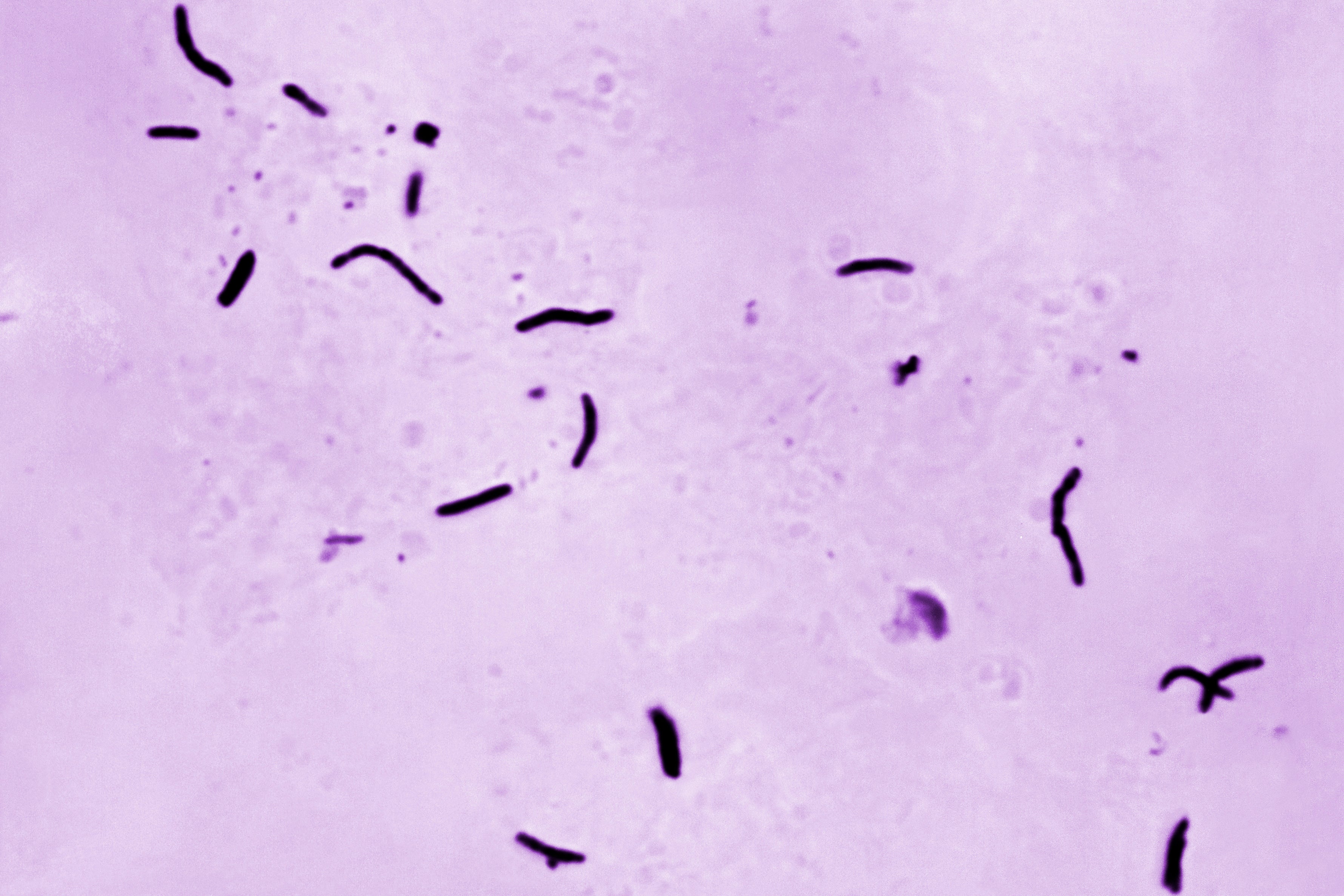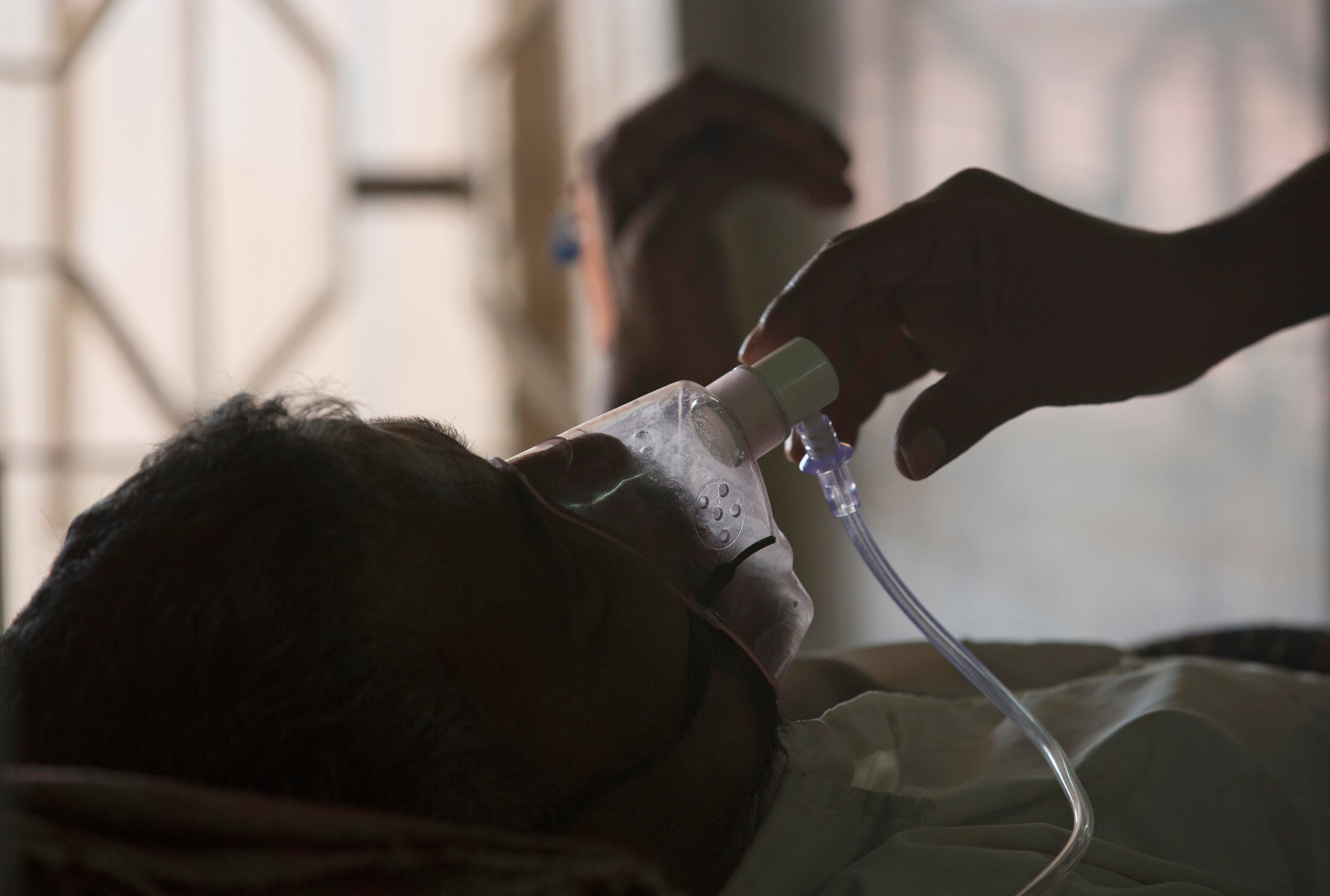WHO says 2023 saw the highest number of tuberculosis cases on record
TB likely returned to being the world’s top infectious disease killer after being replaced by COVID-19

More than eight million people were diagnosed with tuberculosis (TB) last year, the World Health Organization said Tuesday, the highest number recorded since the U.N. health agency began keeping track.
About 1.25 million people died of TB last year, the new report said, adding that TB likely returned to being the world’s top infectious disease killer after being replaced by COVID-19 during the pandemic. The deaths are almost double the number of people killed by HIV in 2023.
WHO said TB continues to mostly affect people in Southeast Asia, Africa and the Western Pacific; India, Indonesia, China, the Philippines and Pakistan account for more than half of the world's cases.
“The fact that TB still kills and sickens so many people is an outrage, when we have the tools to prevent it, detect it and treat it,” WHO Director-General Tedros Adhanom Ghebreyesus said in a statement.
TB deaths continue to fall globally, however, and the number of people being newly infected is beginning to stabilize. The agency noted that of the 400,000 people estimated to have drug-resistant TB last year, fewer than half were diagnosed and treated.

Tuberculosis is caused by airborne bacteria that mostly affects the lungs. Roughly a quarter of the global population is estimated to have TB, but only about 5–10% of those develop symptoms.
Advocacy groups, including Doctors Without Borders, have long called for the U.S. company Cepheid, which produces TB tests used in poorer countries, to make them available for $5 per test to increase availability. Earlier this month, Doctors Without Borders and 150 global health partners sent Cepheid an open letter calling on them to “prioritize people's lives” and to urgently help make TB testing more widespread globally.
What is TB?
Emma Rubach, head of health advice at the charity Asthma + Lung UK, says tuberculosis or TB is a bacterial infection that usually affects the lungs.
“Anyone can get tuberculosis, however, the people most at risk are those who have lived outside of the UK where TB rates are high. Countries where tuberculosis is more common include Bangladesh, China, India, Pakistan, and Indonesia.
“Only 5-10% of people who breathe in TB bacteria develop symptoms and they can become ill in weeks, months, or even years after exposure,” Rubach adds.
“There are two types of tuberculosis. Latent tuberculosis, which is when you have TB bacteria in your body, but because the body’s immune system controls the bacteria and stops it from growing, you don’t experience any symptoms and can’t pass the infection on to others. Then there is active tuberculosis, when the body’s immune system can’t control the TB bacteria and you develop an infection.”
How do you catch TB?
“Most tuberculosis infections are airborne. You can contract it from bacteria coughed up by another person with the infection,” says Dr Colin Michie, associate dean for research and knowledge exchange at the University of Central Lancashire.
“There is a less common type of TB, Mycobacterium bovis, which is found in unpasteurised milk. Consuming this product can therefore put you at risk of contracting the infection, particularly if the cattle involved are not carefully screened.”
What are the symptoms of TB and is it serious?
Tuberculosis is a serious infection, which can be fatal if not treated properly.
“The poet Keats, composer Chopin, and authors Bronte and Orwell are just some of the people throughout history who have died from tuberculosis,” notes Michie.
Rubach says some people may be more at risk of suffering serious symptoms, such as those with weak immune systems, malnourishment, diabetes, people who regularly smoke, drink or take drugs, as well as children under five.
“Active tuberculosis usually affects the lungs but can also affect other parts of the body,” says Rubach. “Symptoms include a cough that lasts more than three weeks, chest pain, weight loss, extreme tiredness, loss of appetite, a high temperature, swollen glands, headaches and body aches and pains.”
Asthma + Lung UK also advises people to call 999 or go to A&E if they have a stiff neck and severe headache, it hurts to look at bright lights, you’ve had a fit (seizure), or your behaviour changes – for example, you become confused – and if you can’t move certain parts of your body.
Bookmark popover
Removed from bookmarks